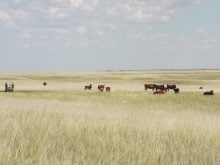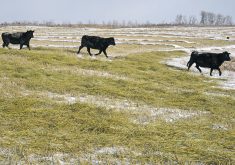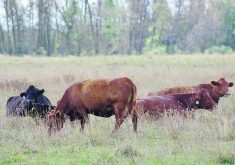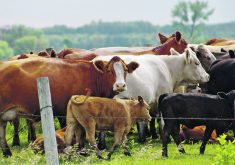The Canadian Roundtable for Sustainable Beef conducts a new consumer survey to help promote the cattle industry
Glacier FarmMedia – A few more Canadians eat beef now than they did in 2022, according to a survey from the Canadian Roundtable for Sustainable Beef.
CRSB executive director Monica Hadarits told the Western Canada Conference on Soil Health and Grazing late last year that consumer research conducted last July found a positive outlook about the industry from consumers.
The organization surveyed around 2,000 Canadians, asking for their thoughts on the industry and about the National Beef Sustainability Assessment, which CRSB published last January.
Read Also

Saskatchewan dairy farm breeds international champion
A Saskatchewan bred cow made history at the 2025 World Dairy Expo in Madison, Wisconsin, when she was named grand champion in the five-year-old Holstein class.
It found that 92 per cent of Canadians eat beef, up two per cent from 2022. It also found that 55 per cent of people say the industry’s sustainability is excellent or good, 28 per cent called it acceptable, 11 per cent were unsure and six per cent say it is poor or very poor. That number has gone down four per cent from 2022.
Thirty-four per cent of respondents said they have a good idea about what makes beef sustainable, 46 per cent said they don’t know much about beef sustainabilty but are OK with that, and 20 per cent said they don’t know and would like to learn more.
When asked what they most want to learn about the beef industry, 69 per cent said animal health and welfare, 57 per cent said safe production of food and 49 per cent said how beef production contributes to maintaining or enhancing wildlife habitat and biodiversity.
Hadarits said this data will help the organization continue to teach consumers about the industry — especially about sustainability.
“The way that we use this information at CRSB is to share it with folks like yourselves, but also to help us in our communications and marketing strategies,” she said.
“When we’re working through the next year, really focusing on those that say it’s acceptable because they’re kind of on the fence, and then those that are unsure.”
She said the organization also wants to spend more time connecting with producers.
“We have heard pretty loud and clear the last year that we need to be in front of producers more, and so we’re working through strategies on that. We’re a very small staff … but you are the foundation of our industry, so that’s something that we’ve committed to working on and doing better on.”
















